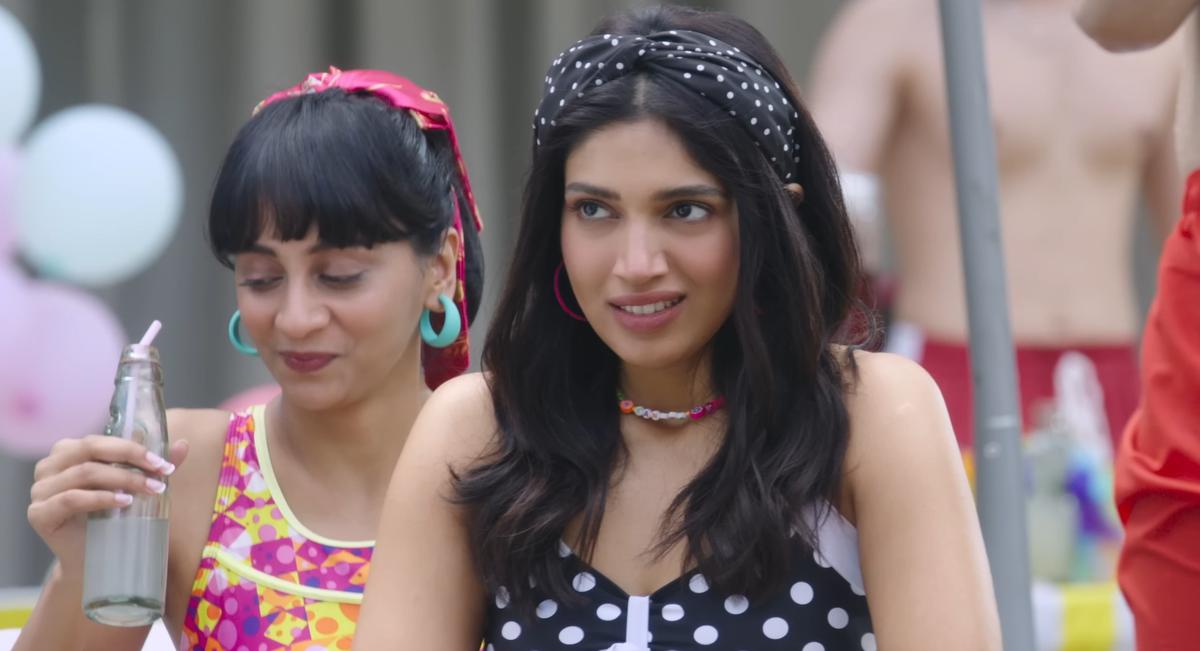How many of you remember watching Queen and thinking, “Wow, I wish I could go on a solo trip and discover myself like Rani did”? I was in my teens when this film came out, and now, years later, the impact of such narratives continues to resonate. Bollywood, known for its colorful song-and-dance routines and melodramatic love stories, has started to embrace women-centric, sex-positive films that are both refreshing and necessary. These films don’t just entertain; they challenge societal norms, encourage self-exploration, and celebrate female agency in ways that were previously unheard of in Indian cinema.
Embracing Female Sexuality: Breaking Taboos with Indoo Ki Jawani
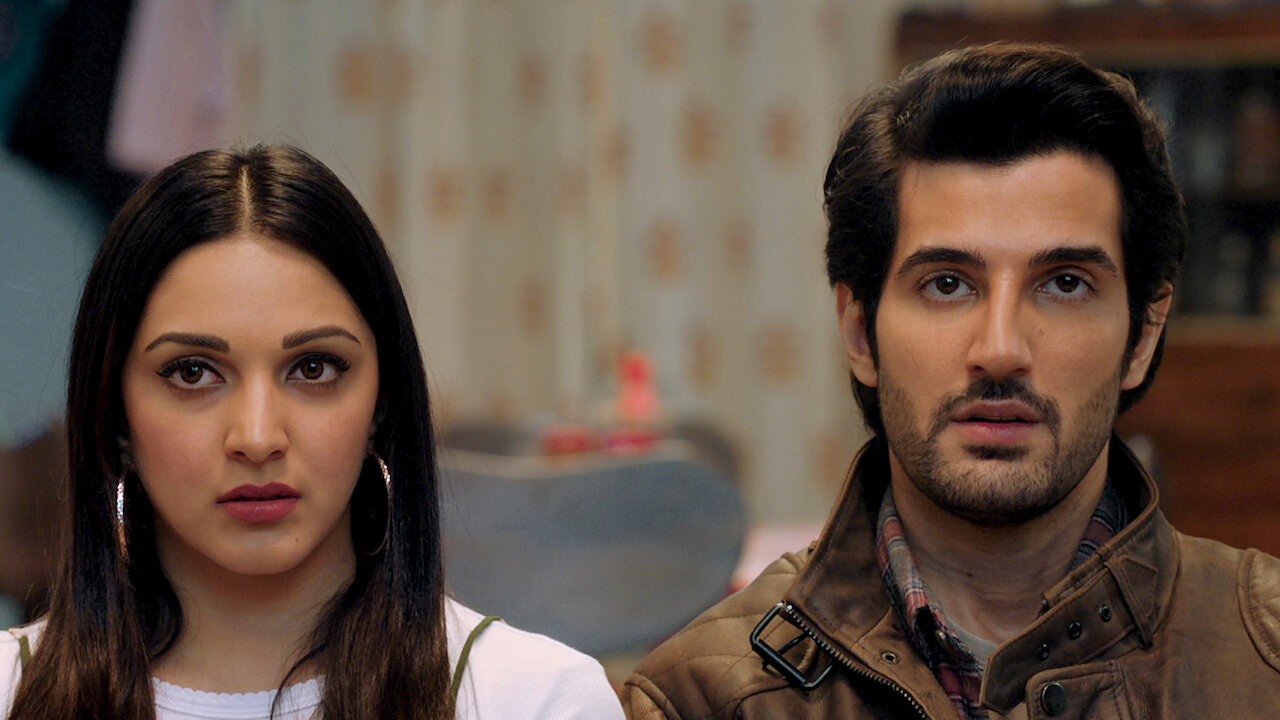
Take Indoo Ki Jawani, for instance. When was the last time you saw a Bollywood movie that placed a young woman’s sexual awakening at its core? Indira “Indoo” Gupta, portrayed by the effervescent Kiara Advani, is a spirited young woman navigating the tricky waters of modern dating and sexuality. In our culture, sex is often shrouded in secrecy and guilt. The idea of sex before marriage is met with harsh judgment, leaving many of us feeling confused and ashamed about our natural desires. Unlike traditional narratives that often sideline women’s sexual agency, this film places it at the center, depicting Indoo’s journey to understand and embrace her own desires. This candid approach to sex and relationships challenges deeply ingrained taboos surrounding female sexuality in Indian society.
Films like Indoo Ki Jawani provide an insightful perspective on life, especially when they reflect the real struggles and aspirations of contemporary women. They challenge the deep-seated taboos surrounding female sexuality and present it in a positive light.
This portrayal is not just refreshing; it is necessary for a society that often polices and suppresses women’s sexual expression.
In Indoo Ki Jawani, Indoo’s journey begins with a humorous but poignant exploration of online dating. Her initial forays are filled with the awkwardness and excitement that many young people experience. The film doesn’t shy away from showing Indoo’s curiosity and her mistakes, making her character relatable and endearing. It’s a celebration of a woman’s right to explore her sexuality without shame or guilt. The narrative is a significant departure from the past, where female characters were often portrayed as docile and submissive.
Growing up in a society where talking about sex is practically taboo, I found her journey incredibly relatable. It’s rare to see a Bollywood film tackle the subject of sex so openly and positively.
Indoo’s journey towards sexual positivity is refreshing and empowering to see in a Bollywood film. Her struggles mirror the plight of many young women in South Asia. Her initial hesitation and the eventual decision to explore her sexuality, despite societal pressures, emulate the struggles many of us face. It’s not just about the act itself but about reclaiming agency over our bodies and choices. Indoo’s story encourages women to question the status quo and embrace their desires without shame.
Movies like this can spark healthier conversations about sex and relationships. They can help break down taboos and promote a more accepting attitude toward sexual health and well-being. For young women like me, this visibility is incredibly empowering. It tells us that our feelings and experiences are valid and that we’re not alone in our journey.
The Power of Anthologies: Lust Stories
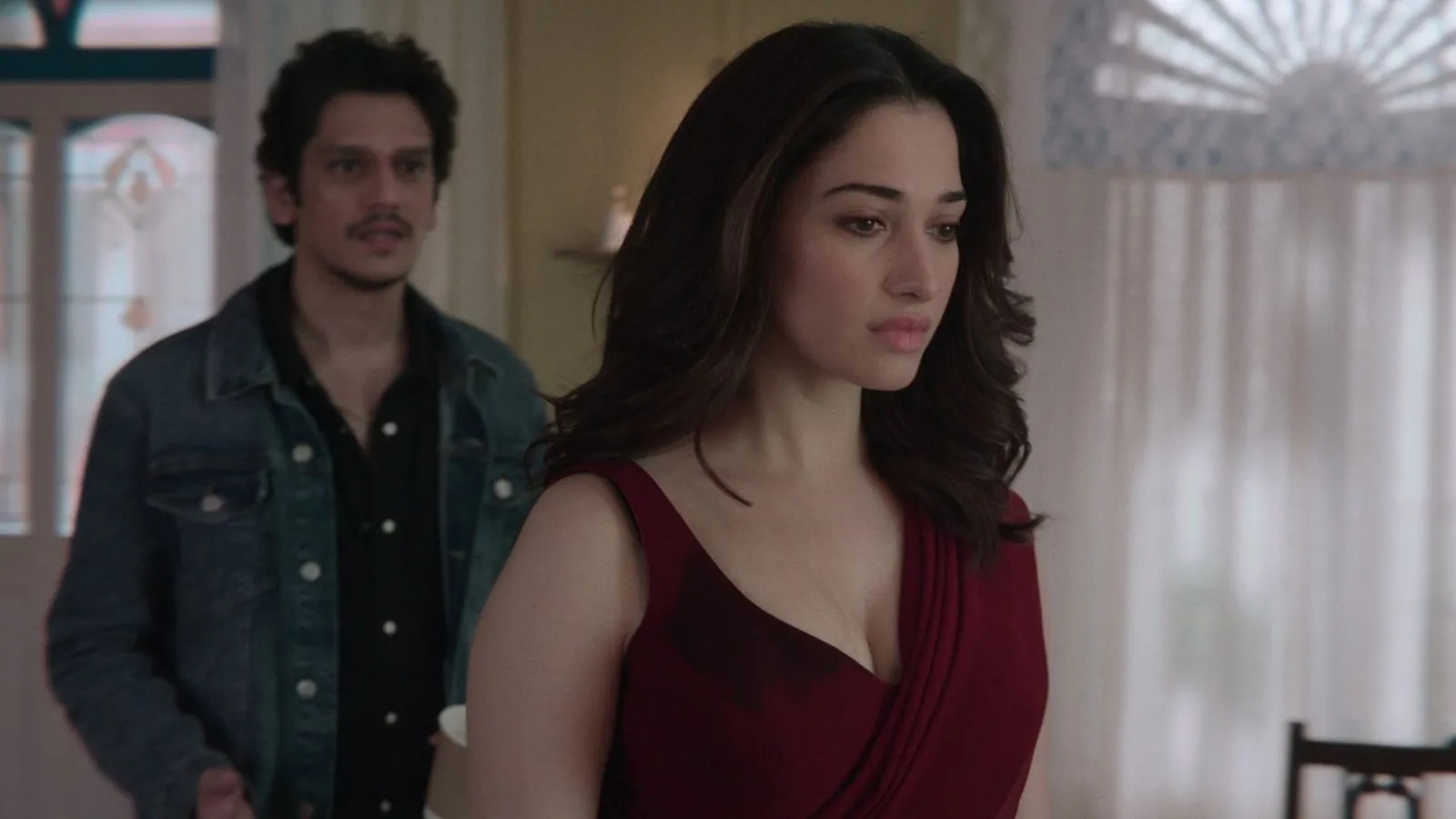
Movies like Lust Stories are another exemplary change in Bollywood. Directed by some of the industry’s most prominent filmmakers—Anurag Kashyap, Zoya Akhtar, Dibakar Banerjee, and Karan Johar—this anthology dives deep into the complexities of human relationships and desires. Each segment of Lust Stories tells a unique story about women, their sexuality, and the societal constraints they navigate.
Anurag Kashyap’s segment, for instance, features Radhika Apte as a college professor exploring her sexuality within an open marriage. The narrative is raw and unfiltered, presenting her character’s internal conflicts and desires with authenticity. Zoya Akhtar’s segment explores the clandestine affair between a domestic worker and her employer, highlighting the intersection of class and sexuality. These stories are not just about sex; they are about the broader human experience, the emotional and psychological aspects of desire, and the societal judgments that come with it.
Lust Stories moves away from the idealized romance of traditional Bollywood films and instead offers a realistic depiction of modern relationships. It portrays sex as a natural and integral part of human relationships, not something to be hidden or shameful.
This is a significant step forward in a culture where discussions around sex are often shrouded in secrecy and stigma.
The sequel, Lust Stories 2, continues this exploration with even more nuanced narratives. In Konkona Sen Sharma’s segment, a layered and intense portrayal of hidden desires is brought to life by Tillotama Shome and Amruta Subhash, examining class divides and the complexities of female voyeurism and desire. R. Balki’s segment uses humor to tackle the taboo topic of sexual compatibility before marriage, while Sujoy Ghosh and Amit Sharma bring in elements of thrill and dark fairy tales, albeit with varied success in maintaining engagement and impact.
Breaking Stereotypes: Four More Shots Please!

Television series like Four More Shots Please! have also played a crucial role in this shift. The show revolves around four independent women who live life on their own terms, exploring themes like homosexuality, divorce, career struggles, and body positivity. Despite facing criticism for its perceived elitism, the series has been groundbreaking in its depiction of modern Indian women and their sexualities.
Anjana, Damini, Umang, and Siddhi, the protagonists of the series, are not afraid to challenge societal norms. Whether it’s Anjana’s fight against workplace discrimination, Damini’s fearless journalism, Umang’s bisexuality, or Siddhi’s journey towards body acceptance, the series covers a wide range of issues with sensitivity and honesty. It’s refreshing to see a show that not only celebrates female friendship but also portrays women as complex individuals with their own desires and struggles.
Four More Shots Please! is particularly notable for its frank discussions about sex and relationships. The characters openly talk about their sexual experiences, preferences, and frustrations, something that is rarely seen in Indian television. This openness helps to normalize conversations about sex and encourages viewers to think critically about their own relationships and desires.
Watching Four More Shots Please! was a rollercoaster of emotions. It was fun, sometimes almost unserious, and definitely not always high quality, but it was still a noteworthy piece of mainstream media for South Asian women.
Tackling Societal Norms: Thank You for Coming
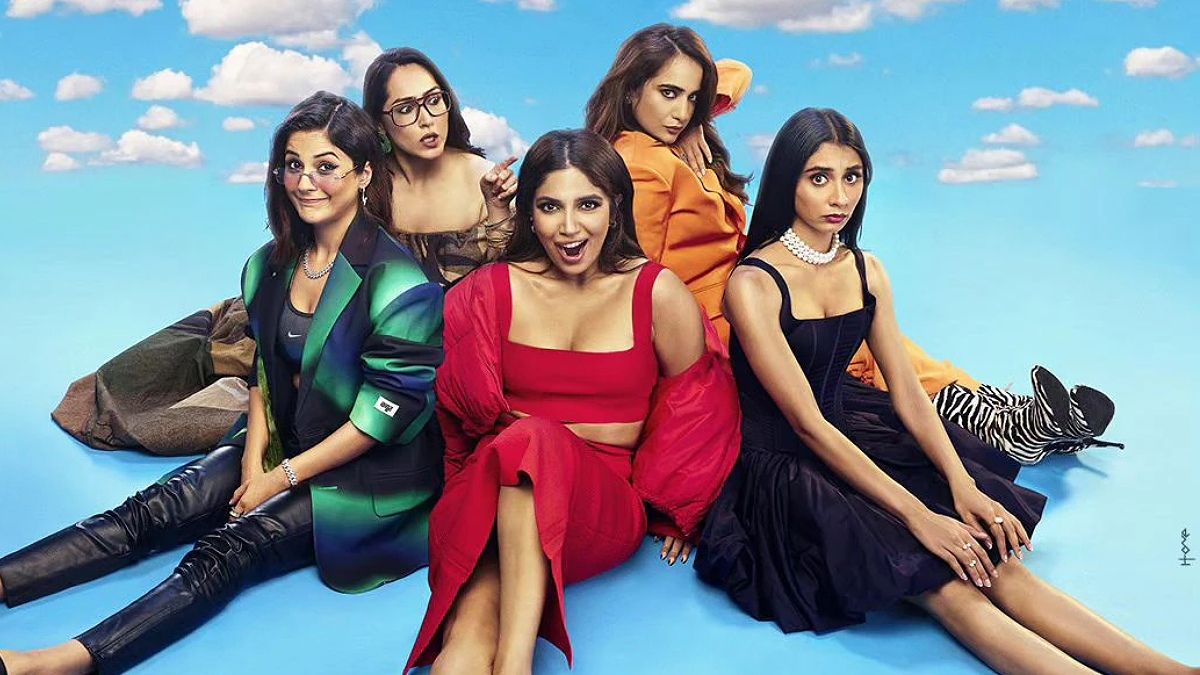
Karan Boolani’s Thank You for Coming is another noteworthy addition to this wave of women-centric, sex-positive films. The movie, which premiered at the Toronto International Film Festival, centers around Kanika Kapoor, a 32-year-old woman who has never experienced an orgasm. Played brilliantly by Bhumi Pednekar, Kanika’s journey to self-discovery and sexual fulfillment is both humorous and poignant.
The film tackles deeply embedded patriarchal norms and societal expectations placed on single women in India. Kanika’s story is a reflection of many women’s realities, where marital pressure, societal criticism, and sexual shame are everyday battles. The film’s strength lies in its ability to address these issues with humor and empathy, making it relatable and impactful.
Kanika’s journey in Thank You for Coming begins with her engagement to a friend she doesn’t love, a decision driven by societal expectations rather than personal desire. Her realization and subsequent quest for sexual satisfaction are depicted with a blend of humor and sincerity that makes the film both entertaining and thought-provoking. It’s a candid exploration of a woman’s right to sexual pleasure.
While the film wasn’t perfect in its execution, the effort it made to address women’s sexual fulfillment and challenge societal norms deserves immense credit. This mainstream movie was made by popular, self-made celebrities who also well advertised its release.
This film gives me hope for more narratives that break the silence around topics like sexual pleasure. I have seen people ask, why is this movie being called a feminist film? But it is definitely a feminist film, because the very act of a woman claiming agency over her sexual pleasure is a radical and transformative step in our society.
A Revolutionary Narrative: Lipstick Under My Burkha
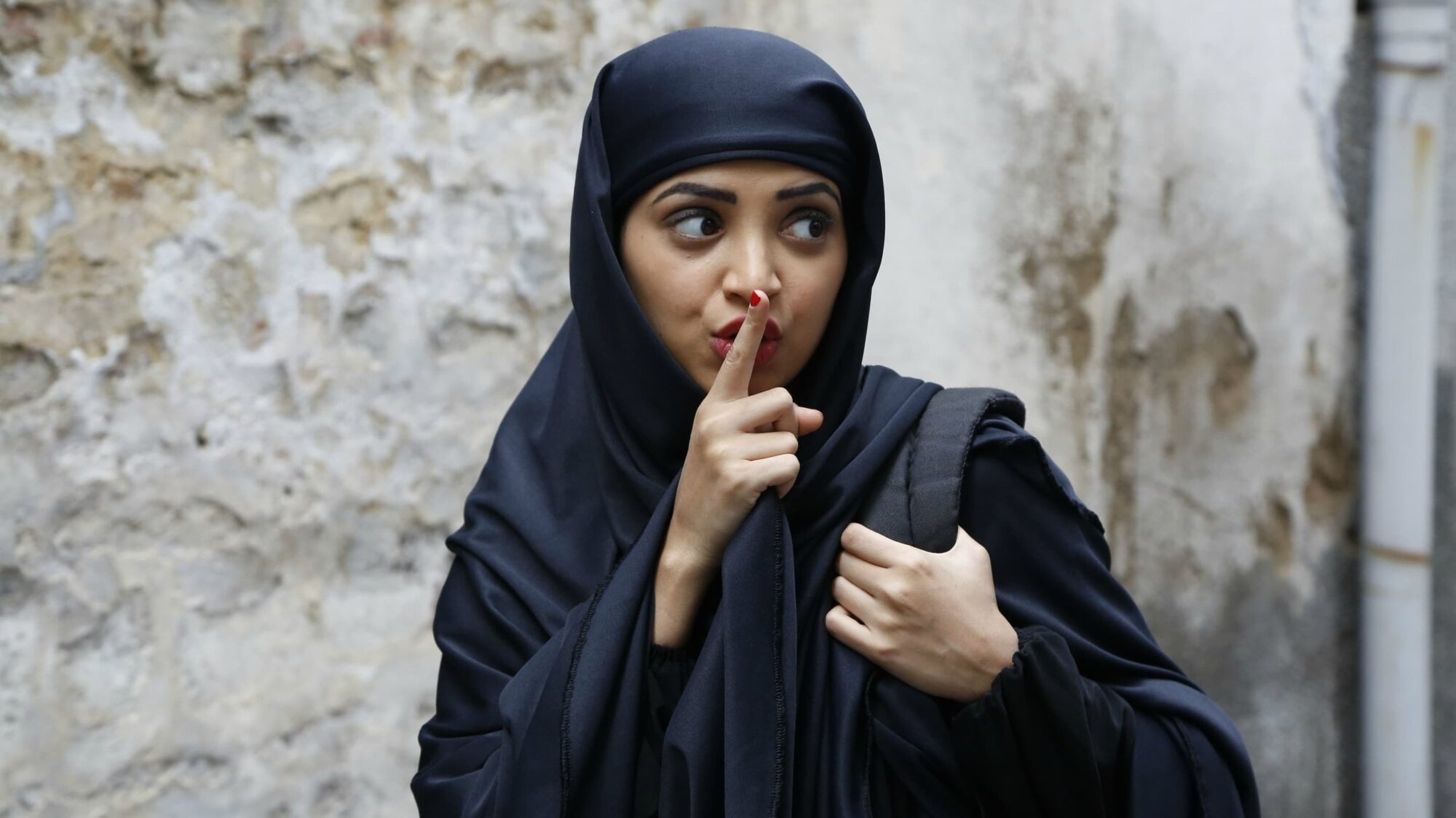
Perhaps one of the most revolutionary films in this genre is Lipstick Under My Burkha, directed by Alankrita Shrivastava. This film faced significant censorship hurdles due to its bold content but ultimately triumphed in portraying women’s desires unapologetically. The narrative follows the lives of four women—Leela, Rehana, Shirin, and Usha—each dealing with their own struggles and aspirations within a conservative society.
Leela dreams of escaping her arranged marriage and starting her own business. Rehana, a college student, wants to break free from her conservative upbringing and explore her identity. Shirin is trapped in an abusive marriage but finds solace in her secret job. Usha, an elderly widow, rediscovers her sexuality and desires. These stories are not just about sexual liberation but about reclaiming their lives and identities from the clutches of societal expectations.
The film’s portrayal of these women’s struggles and triumphs highlights the societal double standards women face. It celebrates their right to pleasure and autonomy, presenting both the lipstick and the burkha as symbols of their complex identities. The film challenges the notion that women’s desires are inherently dangerous or immoral, presenting them instead as natural and empowering.
Lipstick Under My Burkha dives into the intimate lives of these women, presenting their desires, frustrations, and rebellions with honesty and empathy. The film doesn’t shy away from showing the harsh realities these women face but also celebrates their small victories and moments of joy.
It’s a powerful statement on the need for women to reclaim their narratives and assert their rights to their bodies and their lives.
The Impact and Importance of These Films
The impact of these women-centric, sex-positive films extends beyond the screen. They inspire conversations, challenge societal norms, and provide a sense of validation and empowerment to many viewers. For too long, Bollywood has been dominated by narratives that either ignore or trivialize women’s experiences. These new films and series are changing that, offering a more inclusive and realistic portrayal of women’s lives.
Films and series like Indoo Ki Jawani, Lust Stories, Four More Shots Please!, and Thank You for Coming highlight the importance of sexual agency, the need to challenge patriarchal norms, and the value of personal freedom. They encourage viewers to think critically about their own beliefs and attitudes towards sex and relationships.
These films also play a crucial role in normalizing conversations about sex and sexuality. In a culture where such topics are often considered taboo, these narratives provide a platform for open and honest discussions. They help to break down the stigma and shame associated with female sexuality and encourage a more progressive and accepting attitude.
Critiques and Challenges
While these films and series have been praised for their progressive themes, they are not without criticism. Indoo Ki Jawani sometimes resorts to juvenile humor, which can undermine its more serious messages. Similarly, Four More Shots Please! has been critiqued for its elitist portrayal of issues, sometimes failing to resonate with the broader audience who may not share the same privileges. These criticisms, however, do not negate the significant strides these narratives make in portraying women’s lives more authentically and positively.
A notable critique of Lipstick Under My Burkha is its portrayal of men as one-dimensional characters, which detracts from the film’s overall impact. The men in the film are often depicted as caricatures, lacking depth and nuance.
This portrayal can be seen as a missed opportunity to present a more balanced and realistic depiction of gender dynamics, as true feminism seeks to understand and address the complexities of all genders.
Despite these critiques, the overall impact of these films is undeniably positive. They represent a significant step forward in the portrayal of women in Bollywood and contribute to a broader cultural shift towards gender equality and sexual liberation.
Conclusion: A New Era for Bollywood
The rise of women-centric, sex-positive films in Bollywood is a promising sign of the industry’s evolving landscape. These narratives are crucial for breaking down the rigid, patriarchal norms that have long dominated Indian cinema. By showcasing women who are flawed, fearless, and unapologetically themselves, Bollywood is beginning to reflect the complexities and realities of women’s lives. While there is still a long way to go, films like Indoo Ki Jawani, anthologies like Lust Stories, and series like Four More Shots Please! represent a vital step towards a more inclusive and empowering portrayal of women in Indian cinema. This new era is not just refreshing; it is necessary for fostering a more equitable and progressive society.
Ultimately, the focus of these films extends beyond just sex. These films are proof of cinema’s ability to motivate change and mirror society’s shifting values. Bollywood’s embrace of women-centric, sex-positive narratives is a welcome change, one that promises to pave the way for more inclusive and diverse storytelling in the future.
